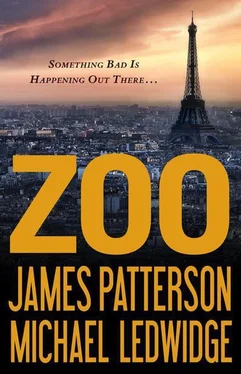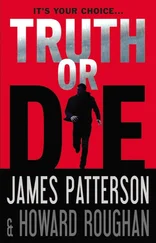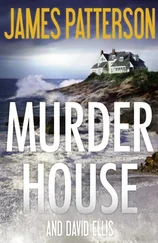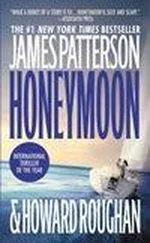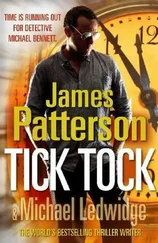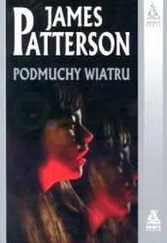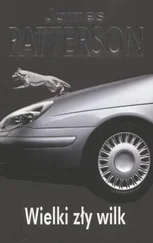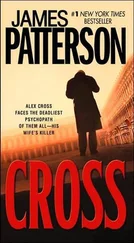So many lives had been lost.
It was early evening when we arrived at Arlington National Cemetery. Near the Tomb of the Unknowns, the contents of the horse-drawn trailers were unloaded into a row of portable morgue units. An army bugler played taps as we were leaving.
It was getting dark by the time Sergeant Alvarez and I made it on foot back across the bridge, heading for the Marine Corps base next to the White House.
Near George Washington University, we were walking down a block lined with trees and bracketed with quaint homes.
And I saw a chrome-and-yellow Hummer parked on the street, idling in front of a town house. When I reached in and shut off the engine, a tall, handsome guy wearing a Yankees cap and a rumpled blue suit ran out. He looked pissed.
“What the hell do you think you’re doing?” the guy said.
“I should ask you the same thing. Maybe you’ve been under a rock, but there’s a ban on driving.”
“No shit, Sherlock,” the guy said, glancing at Sergeant Alvarez and showing me his ID. “I’m Gary Sterling, congressman from New York. This is my apartment. I’m heading back to Long Island to get a few things.”
“Says who?” I said.
He fished a document out of the inner pocket of his suit jacket.
“Says the president,” he said, making little effort to suppress his smirk.
I looked at the piece of paper. I couldn’t believe it. It was a presidential order that authorized the bearer to operate a motor vehicle despite the ban. I looked at the president’s seal and signature, dumbfounded.
I guess I shouldn’t have been that shocked, but I was. Everyone needs to follow the rules, except for the people who don’t. I knew it. This was D.C. I was afraid this would happen.
Representative Sterling snatched the permit out of my hand and promptly restarted his car. But I couldn’t take it. Permit or no permit, I reached in and shut it down again. I took the keys out of the ignition.
“Are you blind? I showed you the permit,” the congressman said.
I curled my right fist around the keys and raised my left. My fists were shaking. I knew what I was doing was crazy. But I guess I had seen too much that day. I’d seen too many dead bodies. Did this guy care? The answer was no, apparently.
“I don’t give a shit!” I said. “You think the rules don’t apply to you? You’re above it all, right? I don’t think so. Fuck your permit. Come and get your keys.”
And I put them in my pocket.
Then what did he do? He simply turned on his heels and walked back up the town house steps. When he got to the top, he took out a cell phone, hit a button, and began speaking calmly into it.
“What the hell? This fool’s two for two. He’s got a Hummer and a working cell phone?” Alvarez said.
A military Hummer roared up a couple of minutes later. Sergeant Alvarez stiffened and came to attention as a marine colonel climbed out from behind the wheel. He spoke to Alvarez, and then Alvarez very reluctantly spoke to me.
“I’m sorry, Oz, but it’s true. They are issuing these permits, or whatever they are. It’s legit. The asshole wins. You either have to give him back his keys, or I arrest you.”
I bit my lip. I shook my head for a little while. Finally, I stopped.
“Fine, okay. You’re right, everybody. I’m sorry. Got carried away,” I said. The congressman came back down the town-house steps. I walked over to him. I held the keys out to him at the curb. As he reached for them, I flung them aside, into a storm drain.
“Whoops!” I said. “Clumsy me. My arms are kind of tired from carrying the dead all day. Truly, truly: my bad.”
Alvarez, even with the glaring colonel present, was having trouble burying his smile. I walked away, and nobody tried to stop me.
Guy Smiley was beside himself, cussing like a sailor with a toothache, frothing with self-righteous indignation. He gave me the finger.
“Hey, that’s nothing new, is it, Congressman?” I gave him a little feminine wave. “I’m an American citizen. Telling us to go fuck ourselves is what you guys are best at.”
But it was a brief, small victory. As I walked, still seething, in the gloaming, I heard it from all over the city: gasoline generators being started up—air conditioners humming back to life. All the people of the world were back to their old tricks. And I’d thought the bugle was sad.
I realized it then. In the dying purple light as the sun set over Washington, I realized it. I listened to the gathering chatter in the dark, and I knew it.
There would be no recovery. We had lost. It was over.
BY SUNDOWN OF the third day of the Big Stop, as people have begun to call it, a loud chugging sound breaks the still, death-like silence in midtown Manhattan. Playing Candy Land with Eli in a pale band of streaming sunlight in the apartment’s back bedroom, Chloe hears it and goes to the window.
She scans the sky over Central Park. The sound picks up volume, and then she sees it. Half a dozen tandem-rotor Chinook helicopters are throbbing over the city, coming in from the West Side. They pass through the gap between the skyscrapers of the Time Warner Center, which stands like a goalpost at the end of Central Park, near Columbus Circle, and continue northeast across the rolling green of the park toward the government Secure Zone.
“No,” Chloe whispers from the terrace. “No, no, no .”
In the sky above them, now there is another roar. A 747 is shrieking westbound, its lights blinking red and green. It’s the first plane she’s seen in a week.
“What is it?” Eli says.
“Helicopters and planes,” Chloe says. “Why are they breaking the ban? It’s been only three days.”
She goes to the terrace. It’s true. Across Central Park West, lights are beginning to twinkle on in the luxury apartment houses, like tiny pieces of luminous candy. She can hear generators whirring on, an ugly, hammering chatter.
Down in the street, she watches as a truck screams onto Fifth Avenue from a side street. Then a motorcycle. Then a Mercedes SUV.
It isn’t just happening in New York, either.
In the absence of animal attacks, people have become emboldened. The air force satellite picks up the imagery as lights start to flicker on in Dallas, in Cincinnati, in Dublin, Milan, Madrid. By the next morning, Beijing smokestacks are throwing up clouds of smoke, fluttering in the air like black satin scarves. The Canadian legislature overturns the cell phone ban. Mexico and the EU follow suit.
All over the world, people go back to work. Coal plants are turned on, nuclear facilities, cell towers. Clouds of petrochemicals and hydrocarbons rise back into the air currents, electromagnetic radiation emanates from cell phones and towers, buzzing, shimmering, sweeping across the land like an invisible poison gas. Chemical bonds click back together, re-forming. Energy mixes with matter to create something new.
Change is here to stay. It is the way of life, the way of the world.
The Big Stop is over.
So is human civilization.
ON HIS SUNNY rock in Central Park, Attila awakens. Tense—so tense now. He can feel the adrenaline bulging his veins, pumping in his heart, sending blood to his brain and muscles. The flash of energy. Dendrites, synapses firing. The feeling surges in his body, warping the molecular structures in his brain, that hypersensitive lump of squishy electric meat. His blood pressure increases. His saliva dries as he begins to sweat. The hair on his back bristles.
He is readying himself for attack. Something has triggered the attack impulse in his brain and left the switch on. His breath comes hard and heavy as his aggravation builds. His respiration comes in ragged huffing sounds, almost a snarl.
Читать дальше
